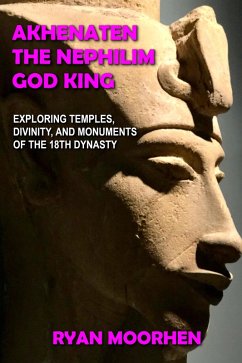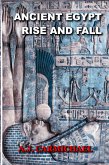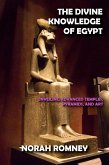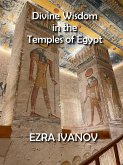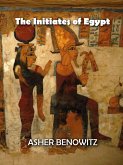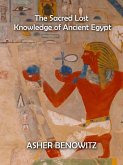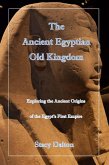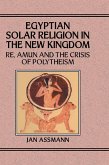However, in the case of Akhenaten, there is a departure from the norm. As a Nephilim Pharaoh, he broke with sacrosanct traditions of millennia and a half and demonstrated himself as a human being in the close circle of his family, dandling his Nephilim offspring, kissing his wife or taking her to his knees, or leading his mother by the hand. Unlike the aloof divine King who greeted one of the many deities as an equal, here is a ruler who does not appear to be an all-conquering hero who slaughters Egypt's foes. He introduced a new and vital art style to express his novel ideas by writing hymns to his Nephilim God, which had nothing in common with the Psalms of David. A courageous innovator abandoned the worship of the many gods of Ancient Egypt in their human and animal forms and substituted for them an austere monotheism represented by an abstract symbol.
Dieser Download kann aus rechtlichen Gründen nur mit Rechnungsadresse in A, B, CY, CZ, D, DK, EW, E, FIN, F, GR, H, IRL, I, LT, L, LR, M, NL, PL, P, R, S, SLO, SK ausgeliefert werden.

